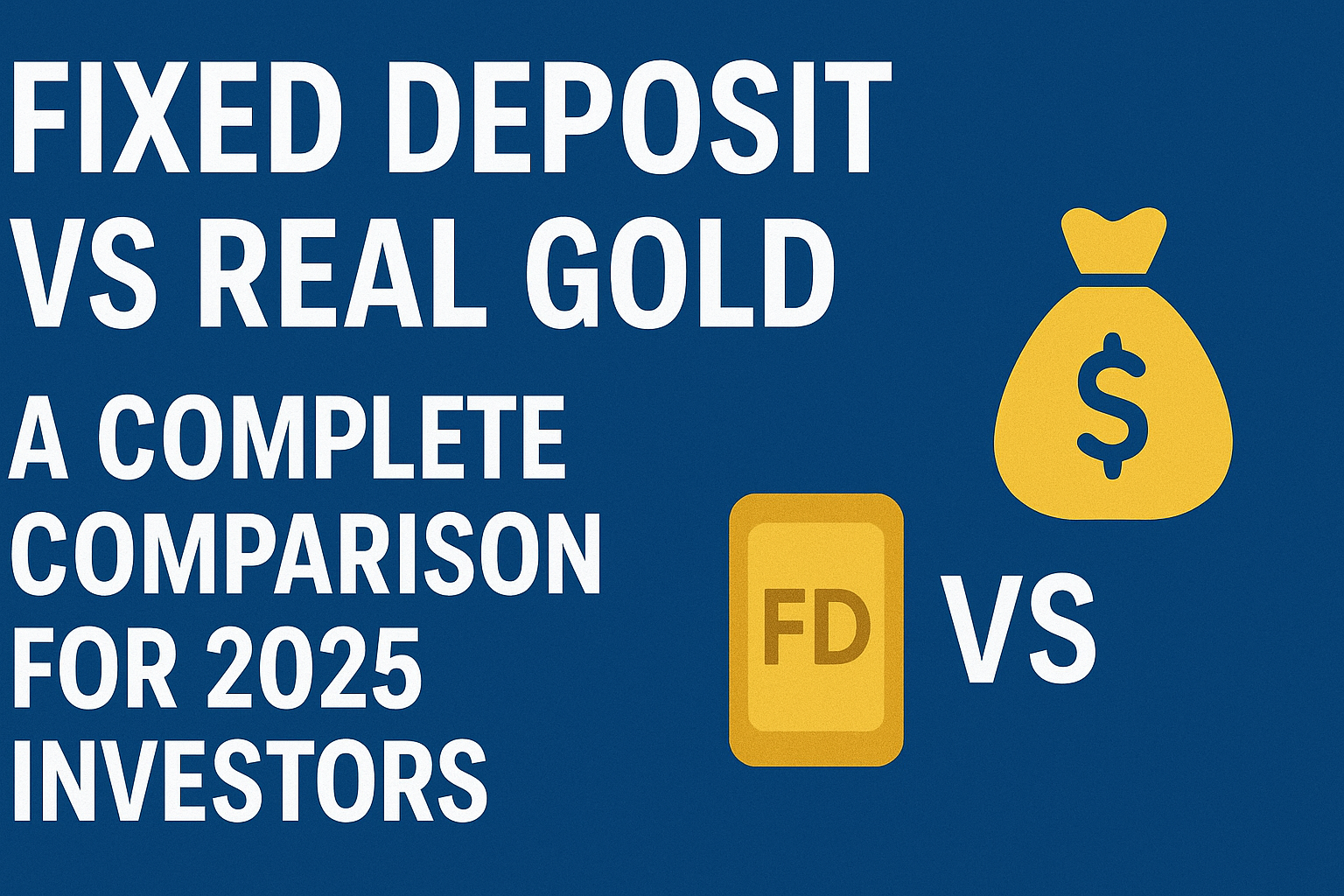Fixed Deposit vs Mutual Fund : In the world of personal finance, choosing the right investment vehicle is crucial for long-term wealth creation. Two of the most popular options in India today are Mutual Funds and Fixed Deposits Both have their unique advantages, but they cater to different types of investors based on risk appetite financial goals, and investment horizons.
This article provides a detailed comparison of Mutual Funds vs Fixed Deposits in 2025, helping you decide which one is better suited for your financial goals.
What is a Mutual Fund?
A mutual fund is an investment scheme that pools money from multiple investors to invest in a diversified portfolio of stocks, bonds, or other securities. Managed by professional fund managers, mutual funds offer investors access to the stock market without requiring extensive market knowledge.
Types of Mutual Funds:
- Equity Mutual Funds: Invest primarily in shares of companies.
- Debt Mutual Funds: Invest in fixed-income instruments like government bonds or corporate debt.
- Hybrid Funds: Combine both equity and debt instruments for balanced returns.
What is a Fixed Deposit?
Fixed Deposit commonly known as an FD, is a traditional investment option offered by banks and non-banking financial companies (NBFCs). Investors deposit a lump sum for a fixed tenure at a predetermined interest rate.
Types of Fixed Deposits:
- Regular FDs: Fixed interest, fixed tenure.
- Tax-saving FDs
- Senior Citizen FDs
Key Differences Between Mutual Funds and Fixed Deposits
1. Returns
- Mutual Funds: Returns are market-linked mutual funds have historically provided 10–15% returns over the long term. Debt funds usually deliver around 6–8%.
- Fixed Deposits: Offer fixed returns, typically between 6.5% and 7.5% in 2025, depending on the bank and tenure.
- Verdict: Mutual funds have the potential for higher returns but come with risk. FDs offer guaranteed returns, making them ideal for capital preservation.
2. Risk Factor
- Mutual Funds: Subject to market volatility. Equity funds carry higher risk, while debt funds are relatively safer but not entirely risk-free.
- Fixed Deposits: Virtually risk-free if invested with reputed banks. Covered up to ₹5 lakh under DICGC insurance.
- Verdict: FDs are safer; mutual funds involve calculated risk and are suitable for long-term wealth creation.
3. Liquidity
- Mutual Funds: Open-ended funds can be redeemed anytime, usually with settlement in 1–3 working days. Some funds may have exit loads.
- Fixed Deposits: Premature withdrawal is possible but may incur penalties and reduced interest.
- Verdict: Mutual funds generally offer better liquidity, especially for short- to medium-term investors.
4. Taxation
- Mutual Funds: Tax depends on fund type and holding period.
- Equity Funds: Gains over ₹1 lakh taxed at 10% (LTCG); short-term gains taxed at 15%.
- Debt Funds: Taxed as per slab (STCG) or 20% with indexation (LTCG) if held over 3 years.
- Fixed Deposits: Interest is taxed as per the investor’s income tax slab. TDS is deducted if interest exceeds ₹40,000, ₹50,000
- Verdict: Mutual funds offer better post-tax returns for long-term investors, especially with indexation and equity exposure.
5. Investment Flexibility
- Mutual Funds: Offer SIP (Systematic Investment Plan) options, allowing investments starting from as low as ₹500/month.
- Fixed Deposits: Require a lump-sum investment, usually starting from ₹1,000 to ₹5,000 depending on the institution.
- Verdict: Mutual funds provide more flexibility for small and regular investors.
Which One Should You Choose?
The choice between mutual funds and fixed deposits depends on your investment goals, risk tolerance, and time horizon.
Choose Fixed Deposits if:
- You are risk-averse and prefer capital safety.
- You need fixed, predictable returns.
- You’re investing for short-term goals or an emergency fund.
Choose Mutual Funds if:
- You aim for long-term wealth creation.
- You are comfortable with moderate to high risk.
- You want to beat inflation and grow your money over time.
- You can stay invested for at least 3–5 years.
Final Thoughts
In 2025, both mutual funds and fixed deposits remain relevant investment options. While FDs offer safety and stability, mutual funds provide higher return potential and better tax efficiency over the long term. The best strategy often involves combining both—using fixed deposits for short-term safety and mutual funds for long-term growth.
Also Read : Canara Bank Home Loan Procedure for 2025: Updated Steps Information
Always assess your financial objectives, risk profile, and investment horizon before choosing. Consulting a certified financial advisor can also help in making an informed decision based on your unique needs.

